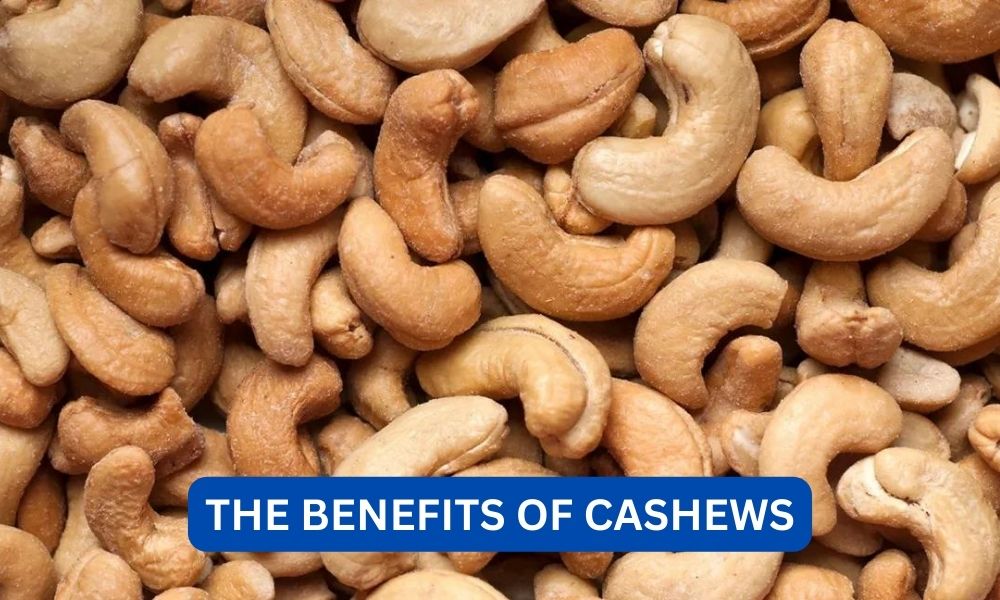Cashews are a popular and delicious nut that is enjoyed all over the world. They are not only tasty but also packed with essential nutrients that provide numerous health benefits. Cashews are native to Brazil and were introduced to other parts of the world by Portuguese explorers in the 16th century. Today, they are widely cultivated in tropical regions such as India, Vietnam, and Nigeria. In this article, we will explore the nutritional value of cashews and the various benefits they offer.
Contents
Rich in Healthy Fats
Cashews are a great source of healthy fats, with approximately 82% of their total fat content being unsaturated fatty acids. These include monounsaturated and polyunsaturated fats, which are known to have numerous health benefits. Monounsaturated fats, in particular, have been linked to a reduced risk of heart disease and stroke. They also help to lower bad cholesterol levels and increase good cholesterol levels in the body.
Furthermore, cashews are also a good source of omega-3 fatty acids, which are essential for brain function and heart health. These healthy fats make cashews a great addition to a balanced diet and can help to promote overall health and well-being.
High in Protein
Cashews are a good source of plant-based protein, making them an excellent choice for vegetarians and vegans. They contain all nine essential amino acids, which are the building blocks of protein. This makes cashews a complete protein source, which is rare in plant-based foods.
Read:How long does it take to get black lung benefits?Protein is essential for the growth and repair of tissues in the body. It also plays a crucial role in the production of enzymes, hormones, and other important molecules. A 1-ounce serving of cashews provides approximately 5 grams of protein, making it a great snack option for those looking to increase their protein intake.
Loaded with Vitamins and Minerals
Cashews are a rich source of various vitamins and minerals that are essential for maintaining good health. They are particularly high in copper, magnesium, and manganese. Copper is important for the production of red blood cells and the maintenance of healthy bones and nerves. Magnesium is essential for energy production, muscle and nerve function, and bone health. Manganese is important for the metabolism of carbohydrates, proteins, and cholesterol.
Cashews are also a good source of other essential vitamins and minerals, including vitamin K, phosphorus, and zinc. Vitamin K is important for blood clotting and bone health, while phosphorus is essential for strong bones and teeth. Zinc is important for immune function, wound healing, and cell growth and division.
May Help to Lower Blood Pressure
High blood pressure, also known as hypertension, is a common health problem that affects millions of people worldwide. If left untreated, it can lead to serious health complications such as heart disease and stroke. Fortunately, cashews may help to lower blood pressure due to their high magnesium and potassium content.
Read:what are the benefits of green teaMagnesium helps to relax blood vessels, which can help to lower blood pressure. Potassium, on the other hand, helps to balance the effects of sodium in the body, which is known to increase blood pressure. A study published in the American Journal of Clinical Nutrition found that a diet high in magnesium and potassium can help to lower blood pressure in individuals with hypertension.
May Improve Heart Health
Cashews are a heart-healthy food that may help to reduce the risk of heart disease. As mentioned earlier, they are a good source of healthy fats, which can help to lower bad cholesterol levels and increase good cholesterol levels in the body. This can help to reduce the risk of heart disease and stroke.
Cashews are also rich in antioxidants, which can help to protect the heart from damage caused by free radicals. Free radicals are unstable molecules that can cause oxidative stress, which has been linked to various chronic diseases, including heart disease. The antioxidants in cashews can help to neutralize these free radicals and protect the heart from damage.
May Help to Manage Blood Sugar Levels
Cashews may also be beneficial for individuals with diabetes or those at risk of developing the condition. They have a low glycemic index, which means they do not cause a rapid increase in blood sugar levels. This is important for individuals with diabetes, as they need to carefully manage their blood sugar levels to prevent complications.
Read:What are the benefits of milk thistle?In addition, cashews are a good source of fiber, which can help to slow down the absorption of sugar into the bloodstream. This can help to prevent spikes in blood sugar levels and promote better blood sugar control. A study published in the Journal of Nutrition found that a diet rich in cashews can help to improve blood sugar control in individuals with type 2 diabetes.
May Help to Boost Immune Function
The immune system is responsible for protecting the body against infections and diseases. Cashews may help to boost immune function due to their high zinc content. Zinc is essential for the development and function of immune cells, making it an important nutrient for a healthy immune system.
In addition, cashews are also a good source of antioxidants, which can help to strengthen the immune system and protect the body from harmful pathogens. A study published in the Journal of Nutrition found that a diet rich in cashews can help to improve immune function in older adults.
How to Incorporate Cashews into Your Diet
Cashews are a versatile nut that can be enjoyed in a variety of ways. Here are some ideas on how to incorporate cashews into your diet:
- Snack on a handful of cashews for a quick and healthy energy boost.
- Add cashews to your breakfast cereal or oatmeal for a crunchy and nutritious topping.
- Use cashew butter as a spread on toast or as a dip for fruits and vegetables.
- Add cashews to salads for a protein and nutrient boost.
- Use cashews as a topping for stir-fries or curries.
- Make cashew milk by blending cashews with water and using it as a dairy-free milk alternative.
Conclusion:
Cashews are not only delicious but also packed with essential nutrients that offer numerous health benefits. They are a great source of healthy fats, protein, vitamins, and minerals, making them a valuable addition to a balanced diet. Cashews may help to lower blood pressure, improve heart health, manage blood sugar levels, boost immune function, and more. So, next time you reach for a snack, consider grabbing a handful of cashews for a tasty and nutritious treat.








